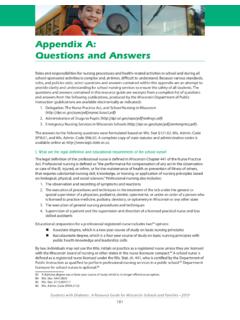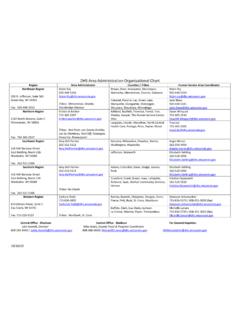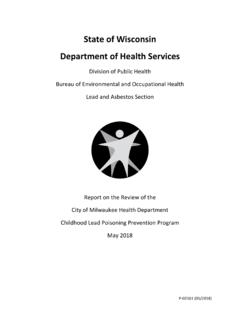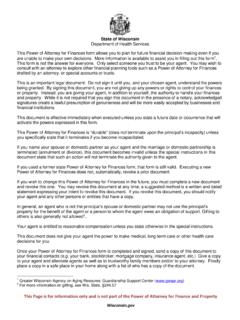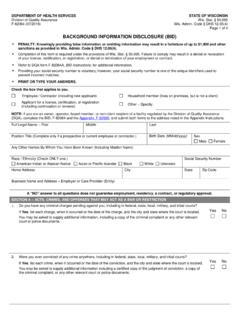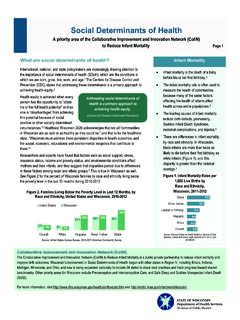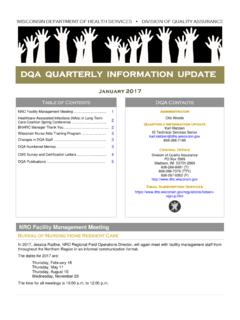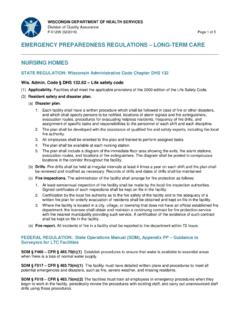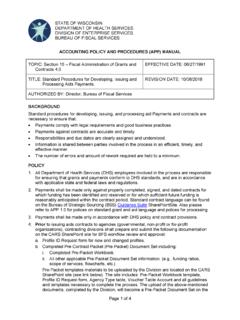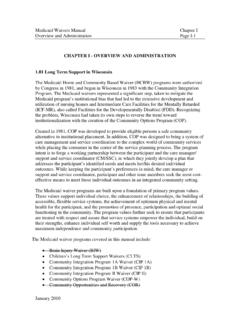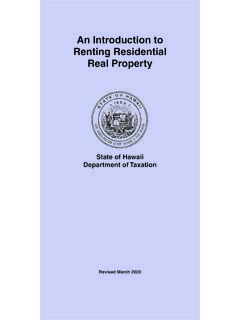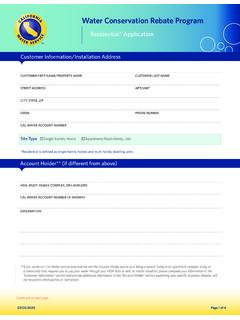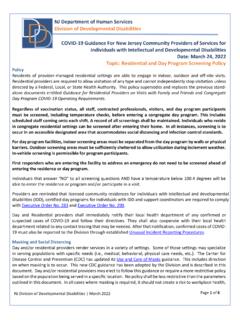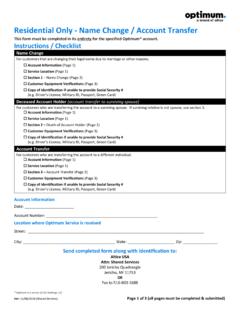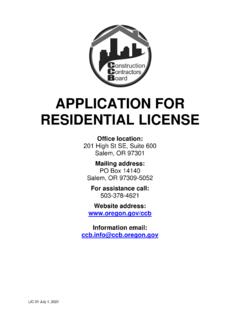Transcription of Frequently Asked Questions about Door Locks in Adult Long ...
1 Frequently Asked Questions (FAQs) about Door Locks in Adult Long-Term Care residential Settings In 2014, the Centers for Medicare and Medicaid Services (CMS) released new federal requirements for home and community-based settings. Under these new requirements that became effective March 17, 2014, the Wisconsin Department of Health Services (DHS) must ensure that residential providers meet the Home and Community- Based Services (HCBS) setting requirements. Therefore, the Department of Health Services, Division of Medicaid Services has been conducting reviews of Wisconsin's Medicaid-funded long-term care residential settings for mandatory compliance with this rule.
2 In the process of these reviews, DHS received numerous Questions concerning the requirement for door Locks . This FAQ provides guidance to residential providers concerning the requirement in accordance with 42 , Part 441. General Information: Door Locks The federal requirement for door Locks is intended to support a resident's personal privacy. While residents do have the right to choose not to lock their doors, the resident's choice does not remove the provider's responsibility to provide Locks on living unit doors. It simply allows the resident to exercise his or her right to privacy and personal choice. Staff in each residential setting should always knock and receive permission prior to entering a resident's living space.
3 If not already in place, the setting should create a policy to ensure that staff always knock and receive permission prior to entering a resident's room or personal living space to respect residents' rights to privacy. At the time of an HCBS review, each setting should be prepared to provide a copy of its policy along with documentation of related staff training and to indicate how compliance with the rule is maintained. Where are door Locks required? Depending on the setting, a resident's living unit may be his or her own apartment, studio, or bedroom. Door Locks are required on all resident living unit doors. What kinds of Locks are acceptable?
4 Prior to selecting and installing Locks , providers are strongly encouraged to give careful consideration to the resident population they serve in order to minimize excessive need to modify or change the Locks to accommodate residents' assessed needs over time. Locks that disengage with the turn of the inside knob or lever are recommended. Locks should allow an individual to exit his or her living unit without delay. Deadbolts or key Locks that can only be unlocked from inside the resident's living unit should not be used. Home and Community-Based Services Settings Rule, P-01817 (02/2018) Page | 1. Door handles should meet the physical needs of the residents of the setting.
5 If a lever handle is required for residents with manual strength or dexterity limitations, the door handle must meet the resident's functional needs in addition to having a locking mechanism. The following is a short descriptive list of acceptable Locks : Keyed door knobs turning knob from the inside disengages the latch Keyed door levers pushing down on lever handle from the inside disengages the latch Dual chamber Locks Locks with a separate keyhole on the lock that allows a different key to be used to override the lock/unlock function Card-based door entry system can be disengaged with a computer Electronic door Locks can be disengaged with a computer What kinds of keys are acceptable?
6 Keys to door Locks may be traditional keys, or have coded or card entry mechanisms. The ability of residents and staff to use nontraditional keys during power outages must be addressed in each setting's emergency procedure plan. Distribution and Use of Keys Does a provider need to have written policy related to RESIDENT access to keys? Yes. Each residential setting must have a policy in place concerning the distribution of keys to residents and staff and the use of keys by staff. The policy and process should be incorporated into the resident's key agreement to be signed at the time of a resident's admission. The policy must address the process by which the provider obtains the individually signed resident key agreement.
7 The policy must also address how residents will receive keys upon admission to the setting, the guidelines for residents' use of keys while living in the setting, and the process for residents' return of keys upon discharge from the setting. If a resident has been assessed as not having the physical or mental capacity to utilize a key/lock, this must be documented within the resident's individual service plan (ISP) and member- centered plan (MCP), as applicable, indicating that the resident living unit door lock needs to be disengaged for this individual. Is it acceptable for a provider to just obtain a resident's legal representative's verbal or written consent for a resident not to have his or her own key?
8 No. With respect to a resident's personal choice and privacy, the resident must be involved, to the extent he or she is capable, in any decisions regarding his or her personal possession and use of a key. The conditions that would prevent a resident from having a key must be specific to the resident's assessed needs, and must be justified and documented in the resident's individual service plan (or AFH service plan) and member-centered plan, as applicable. The resident may choose to involve others, such as parents, a legal representative, or a significant other in the decision. If a resident does not have possession of the key, it does not negate the resident's right to lock his or her living unit when leaving the setting in order to safeguard belongings and ensure privacy.
9 Home and Community-Based Services Settings Rule, P-01817 (02/2018) Page | 2. Does a provider need to have a written policy related to STAFF access to keys? Yes. Providers must have a policy in place that details which staff have access to resident or master keys. The policy should state that the setting's staff will only use a key to enter a resident's living area or private space under circumstances agreed upon with the resident/guardian. The policy must indicate who has access to keys and how the policy will be maintained. In addition, each setting will have a policy in place to ensure that staff always knock and receive permission prior to entering a resident's room or personal living space to respect each resident's right to privacy.
10 At the time of an HCBS review, each setting should be prepared to provide a copy of its policy along with documentation of related staff training and to indicate how compliance with this rule is maintained. What about a setting that has multiple resident living units that will each have a unique key? Settings with multiple resident living units should consider having all living unit door Locks keyed so that staff are allowed to use a master key. This ensures unique keys for each resident's living unit while also allowing staff to have access to all resident living units with one master key (per the individually signed key agreement with each resident).
